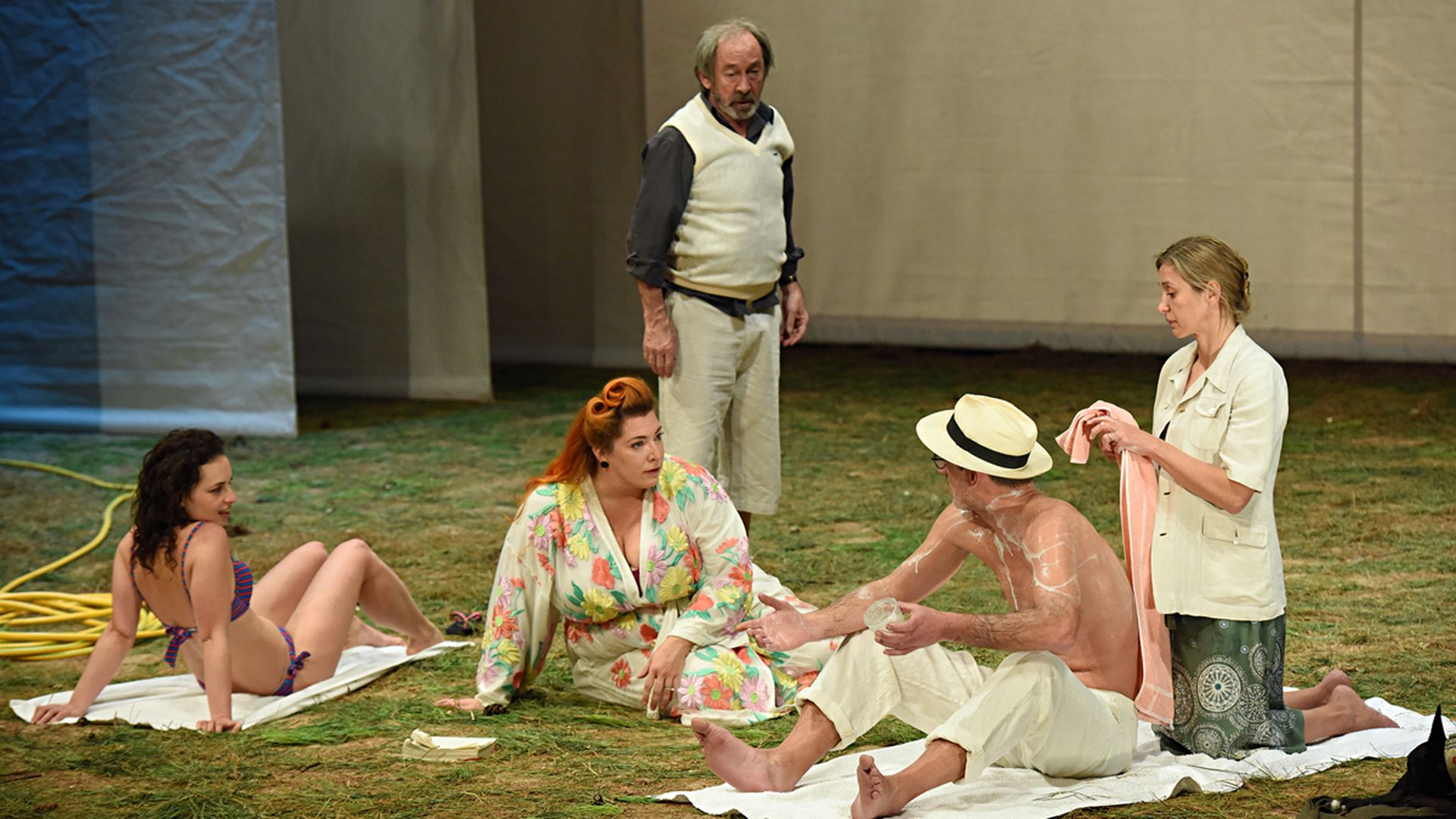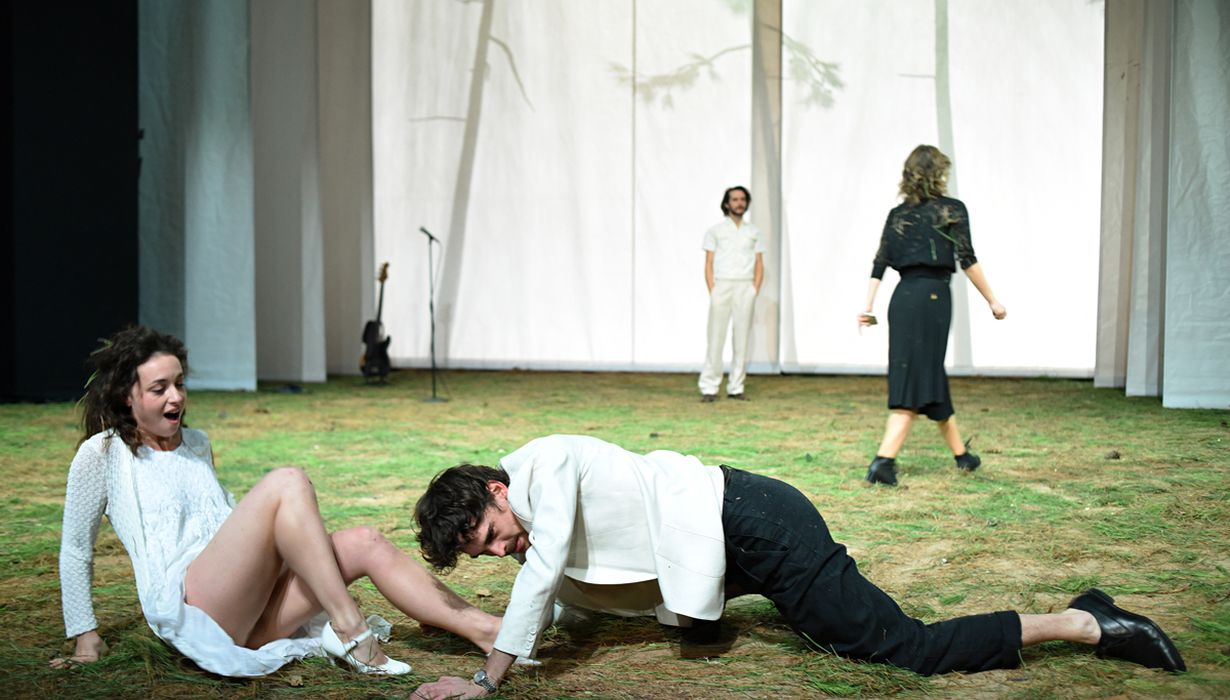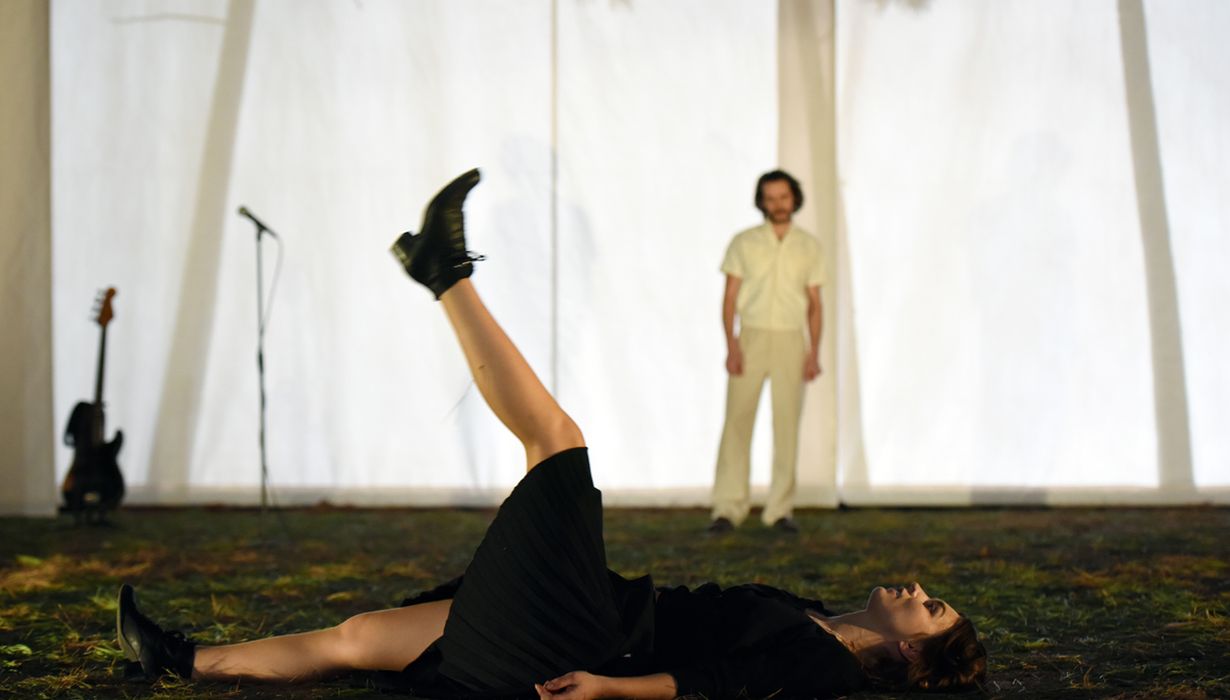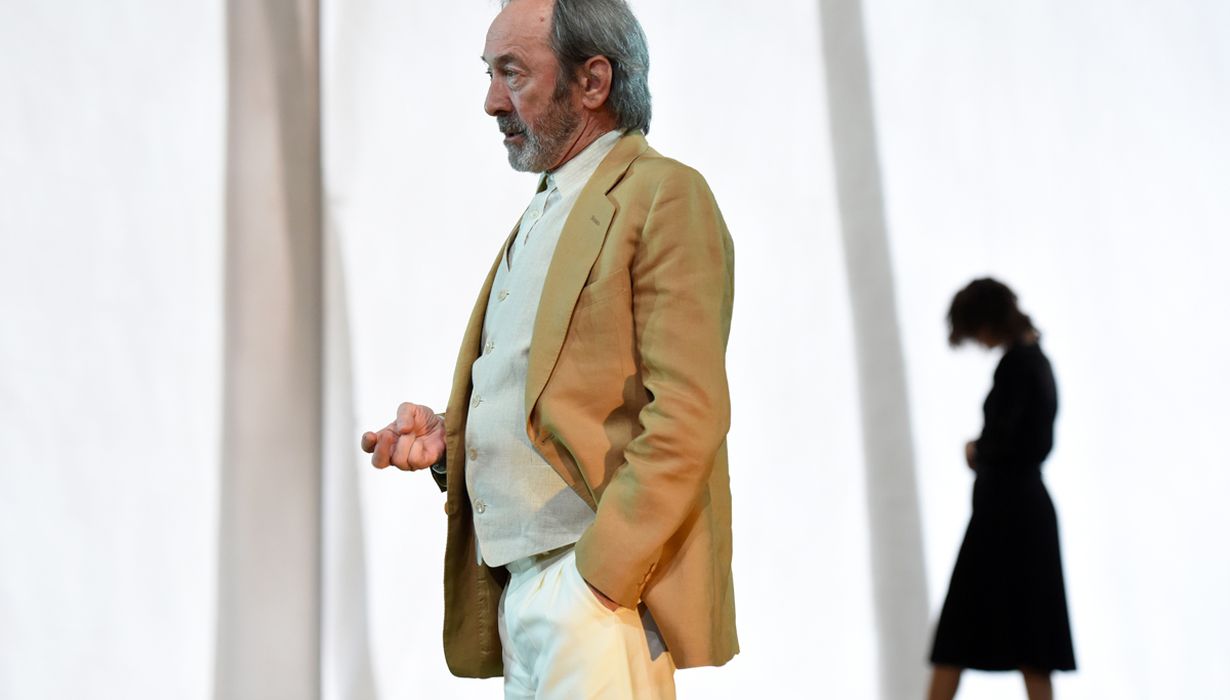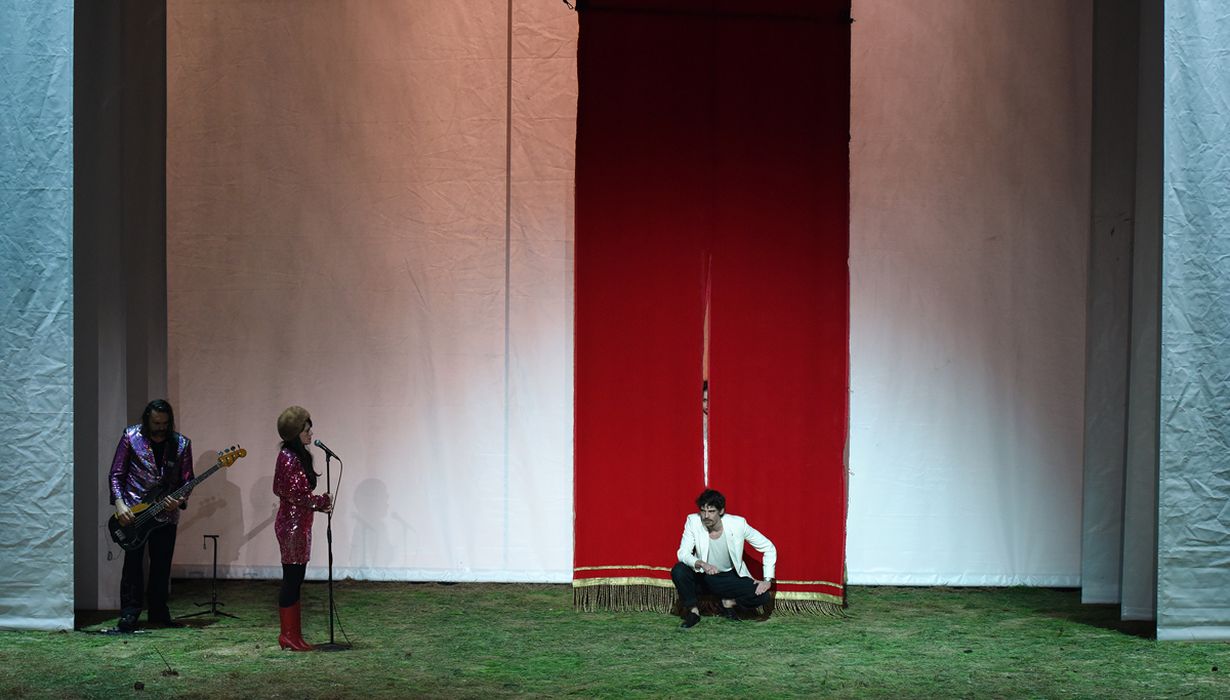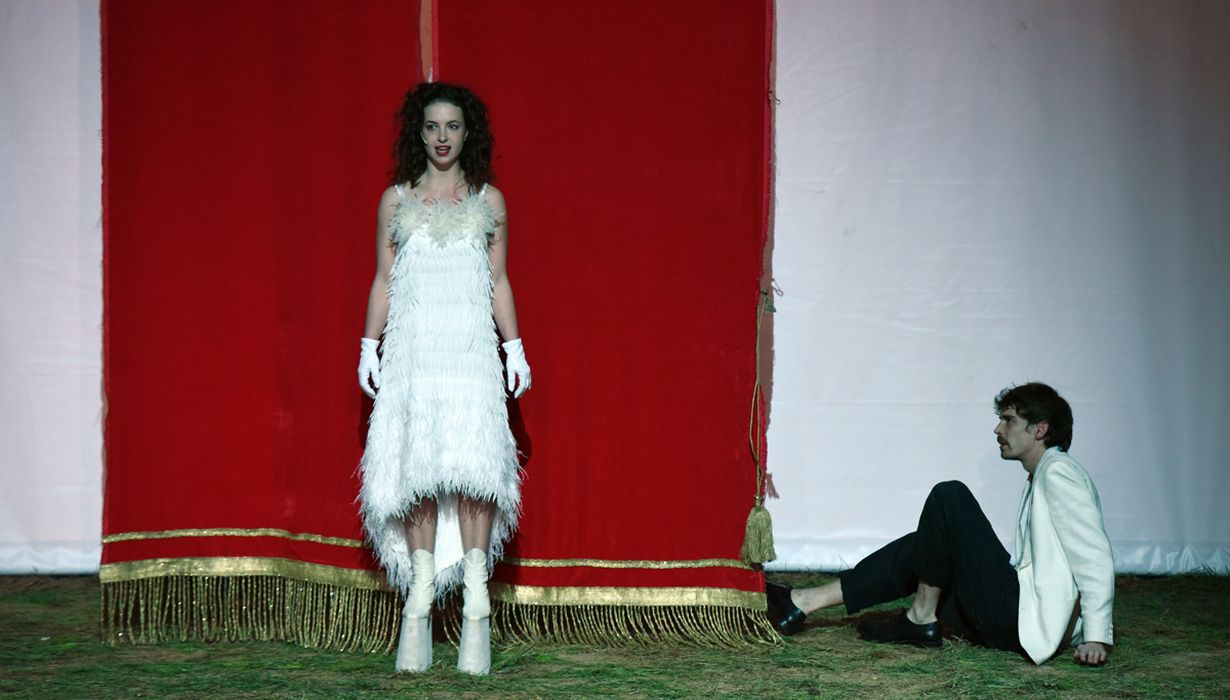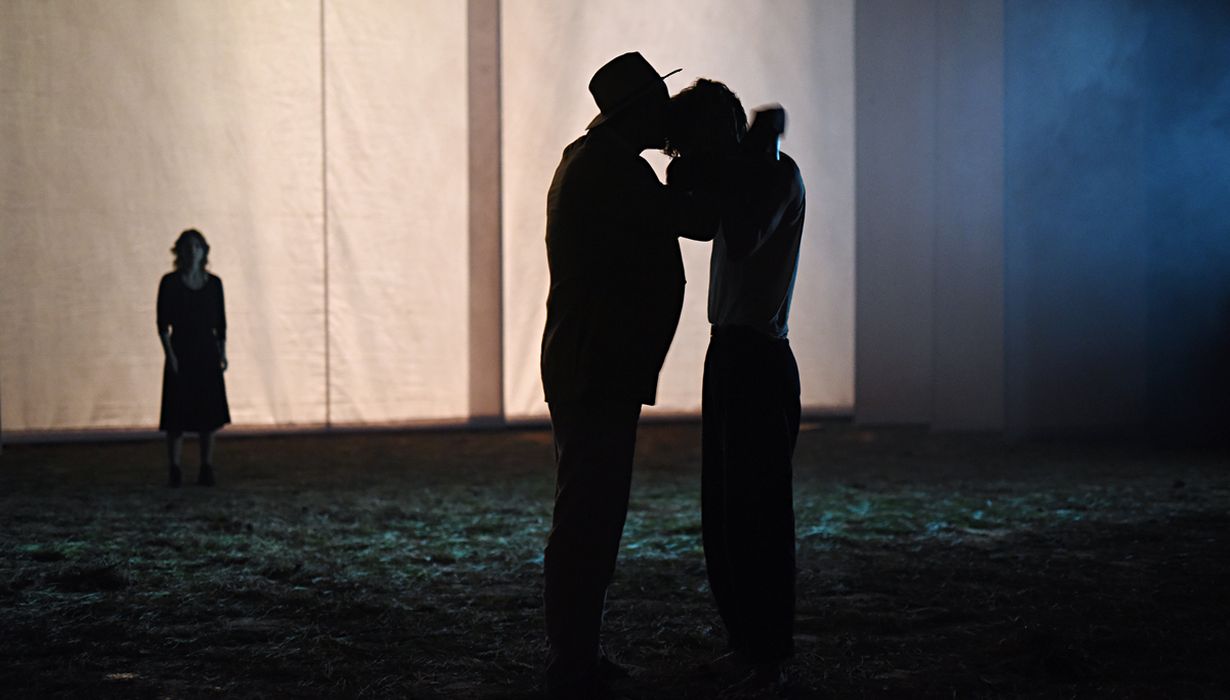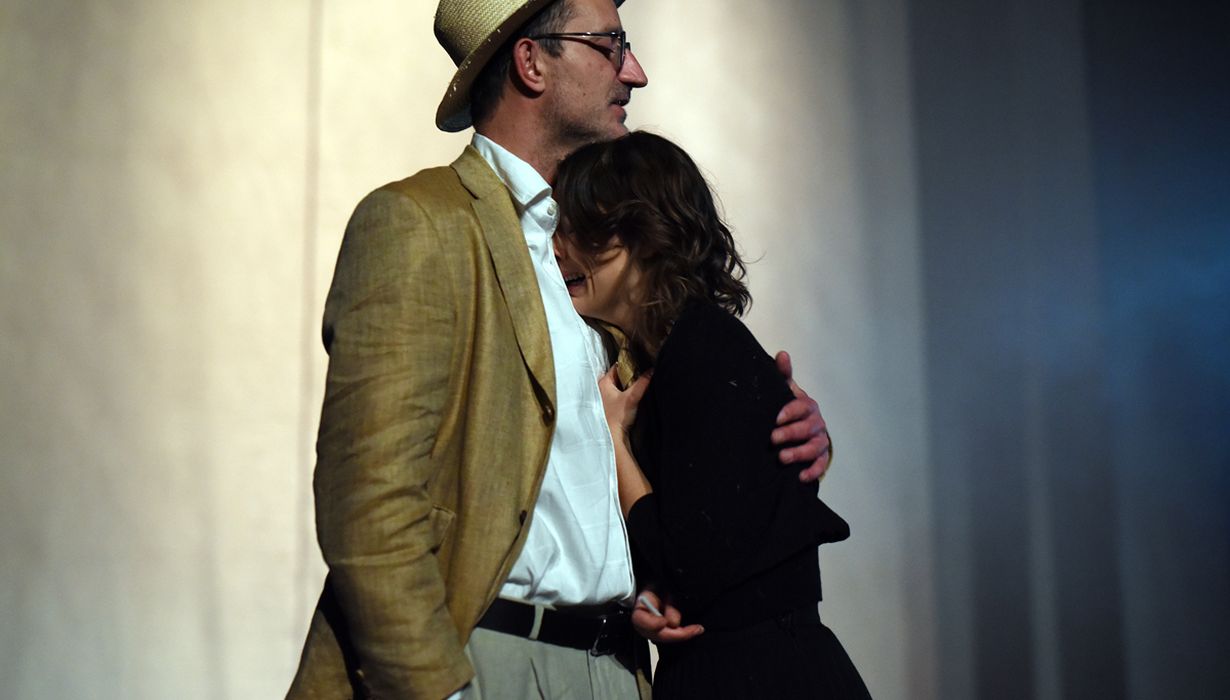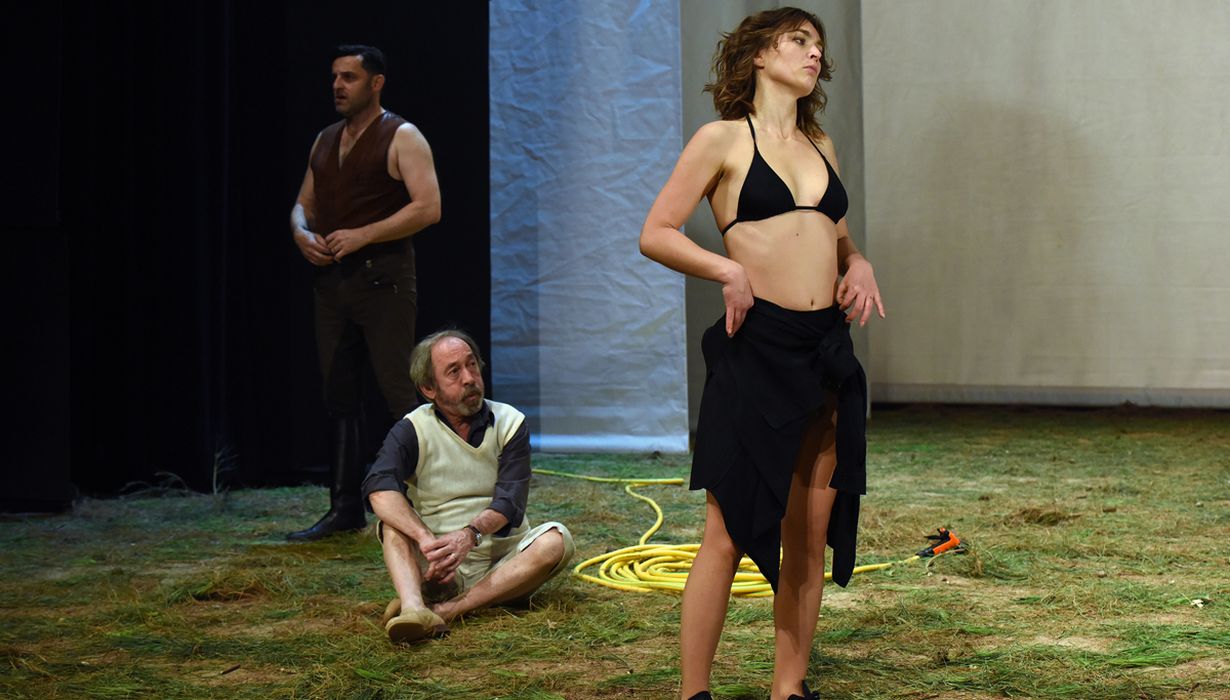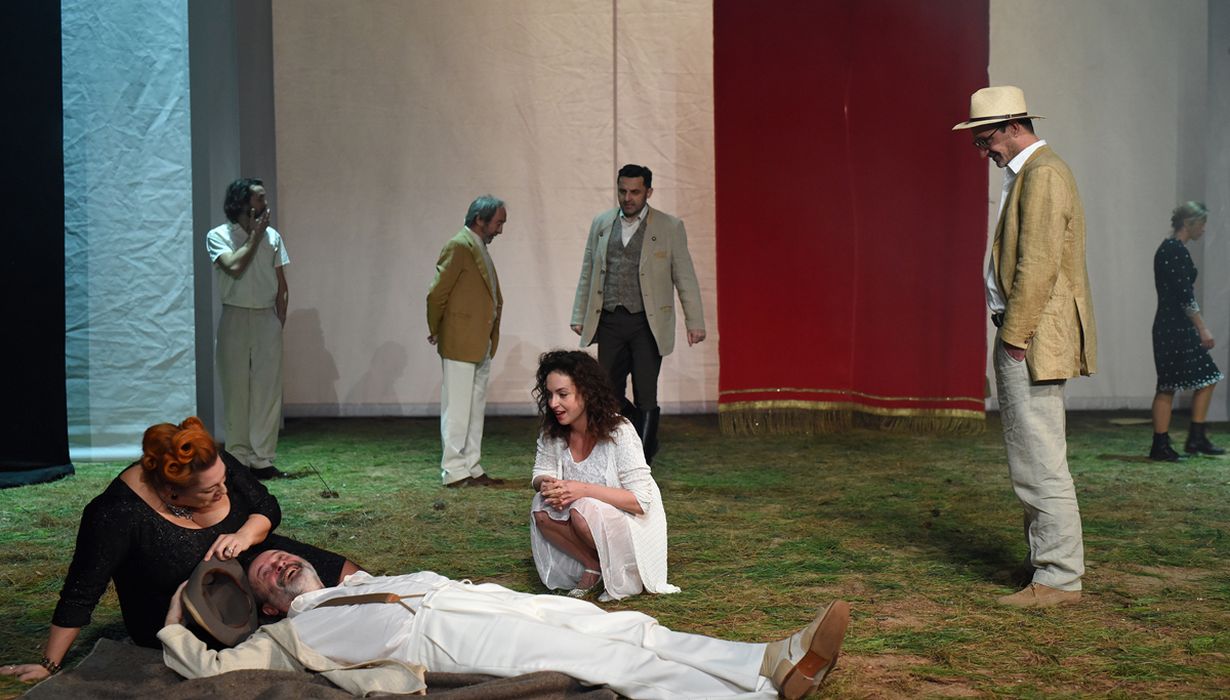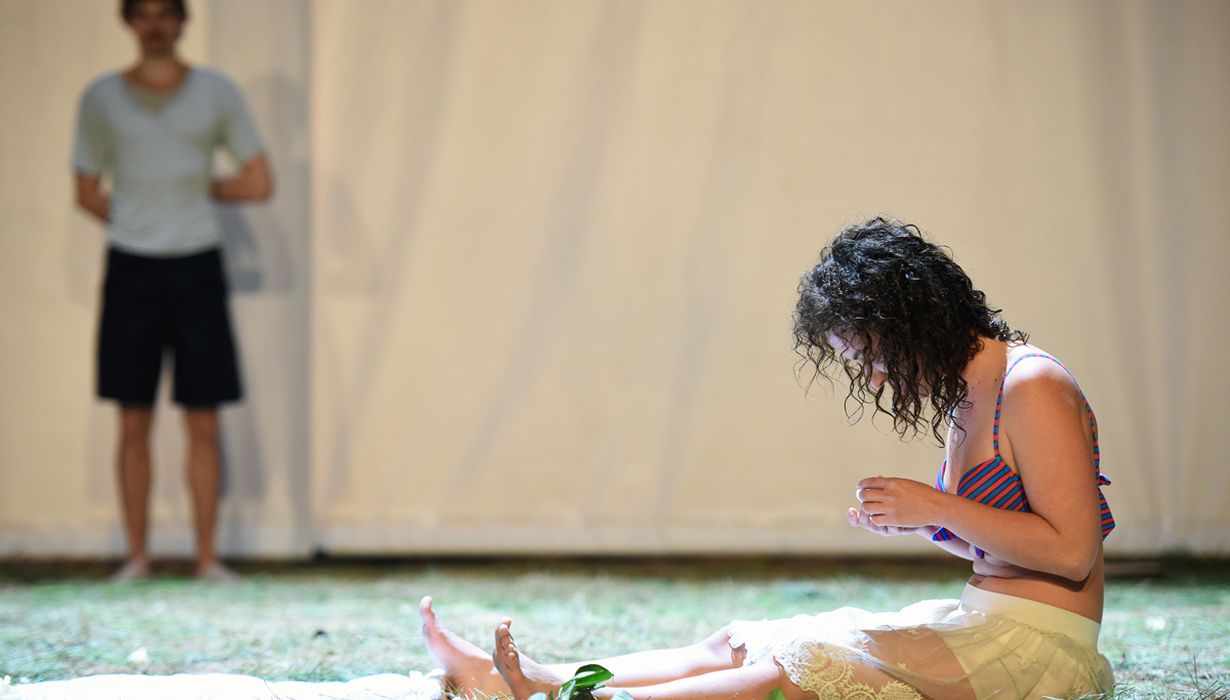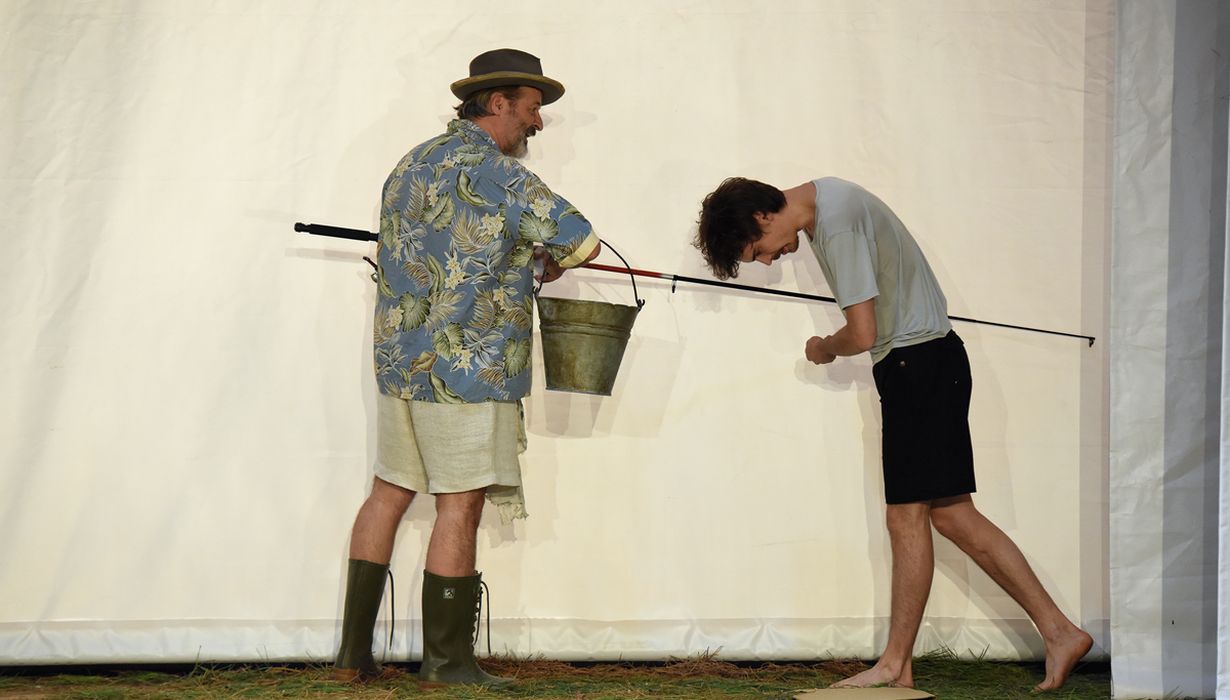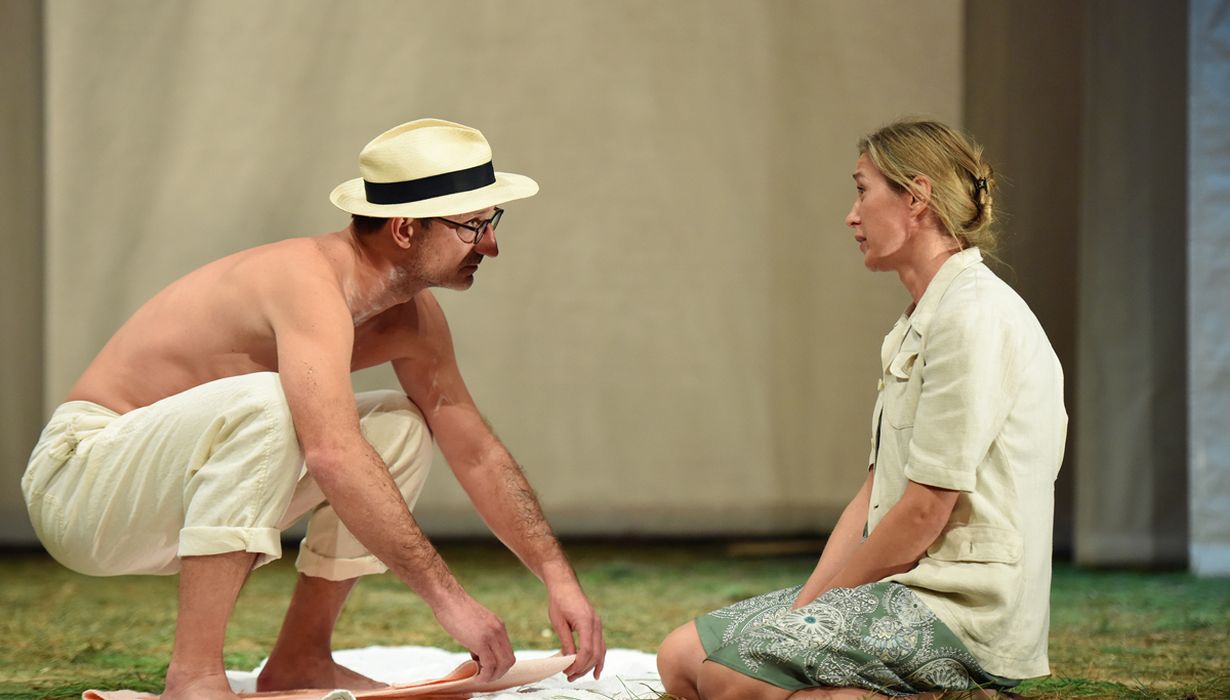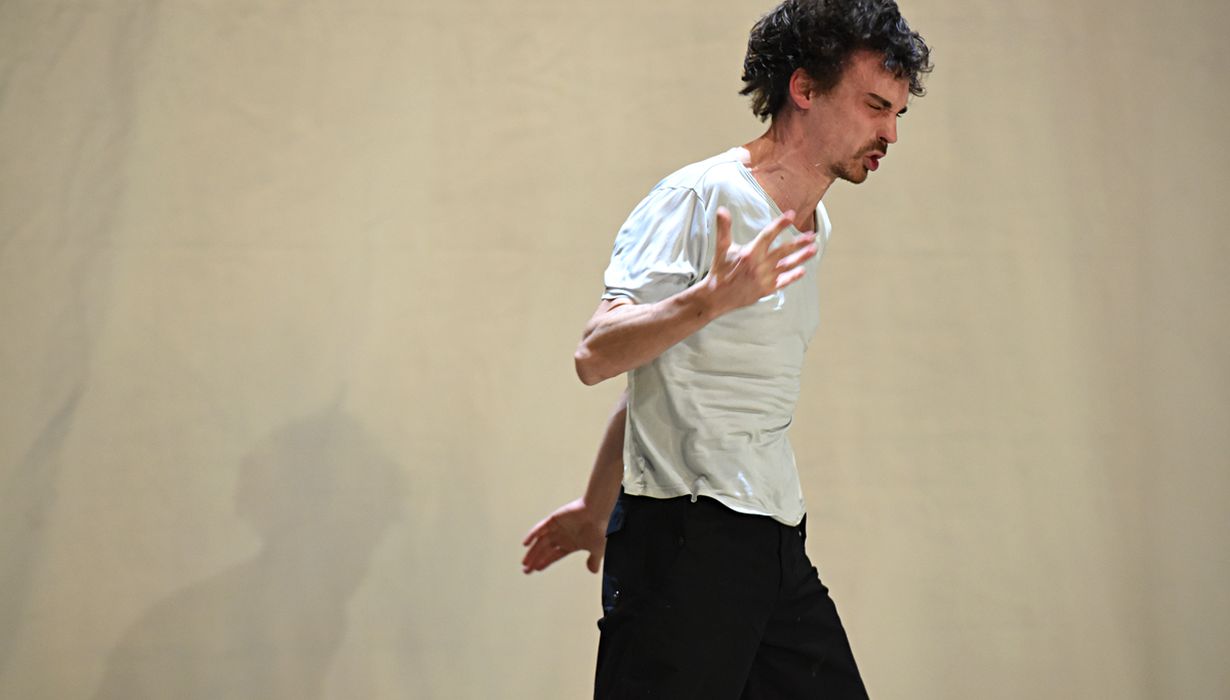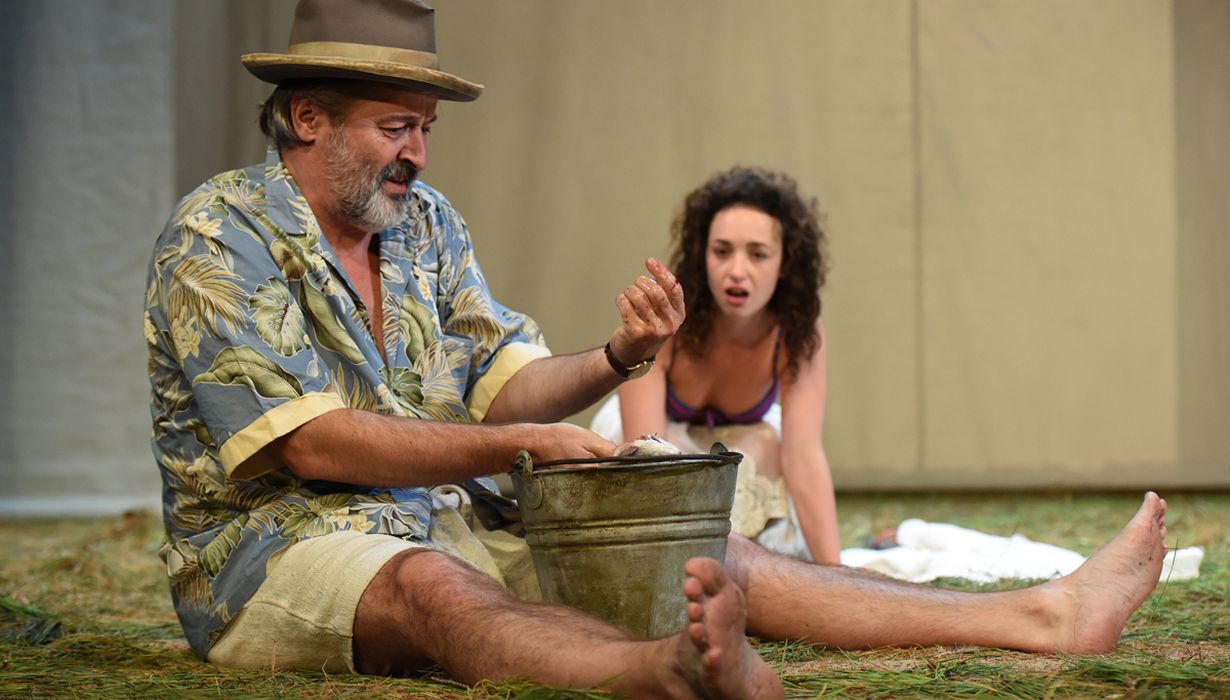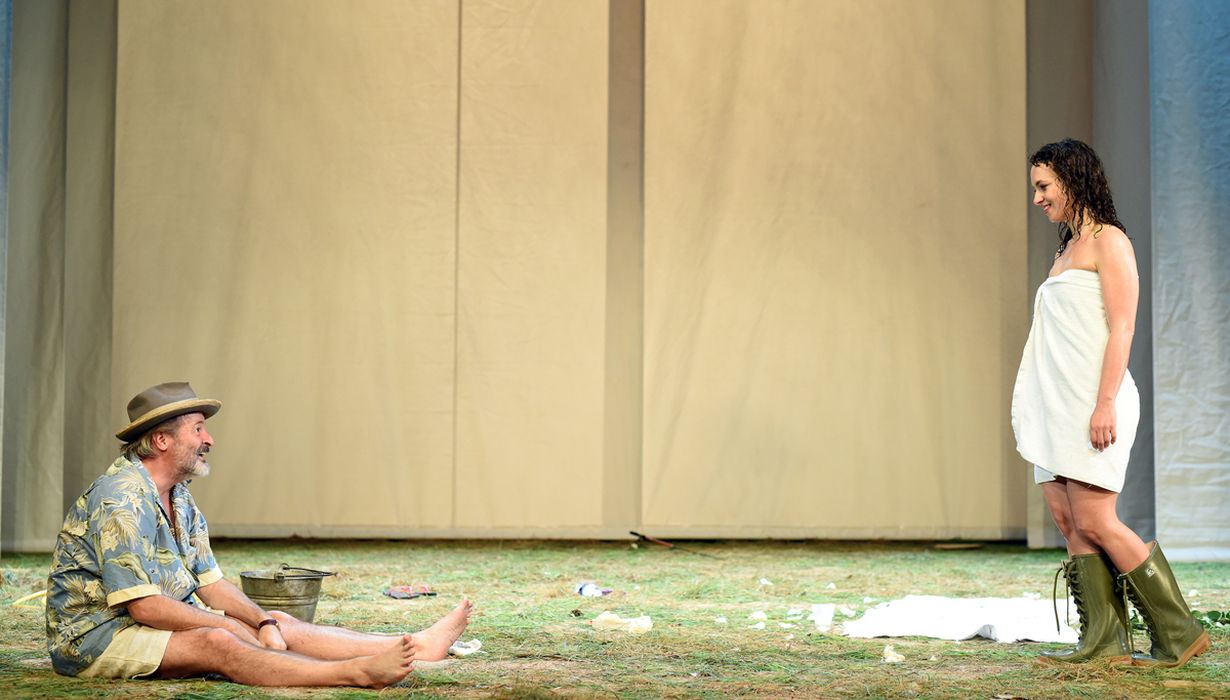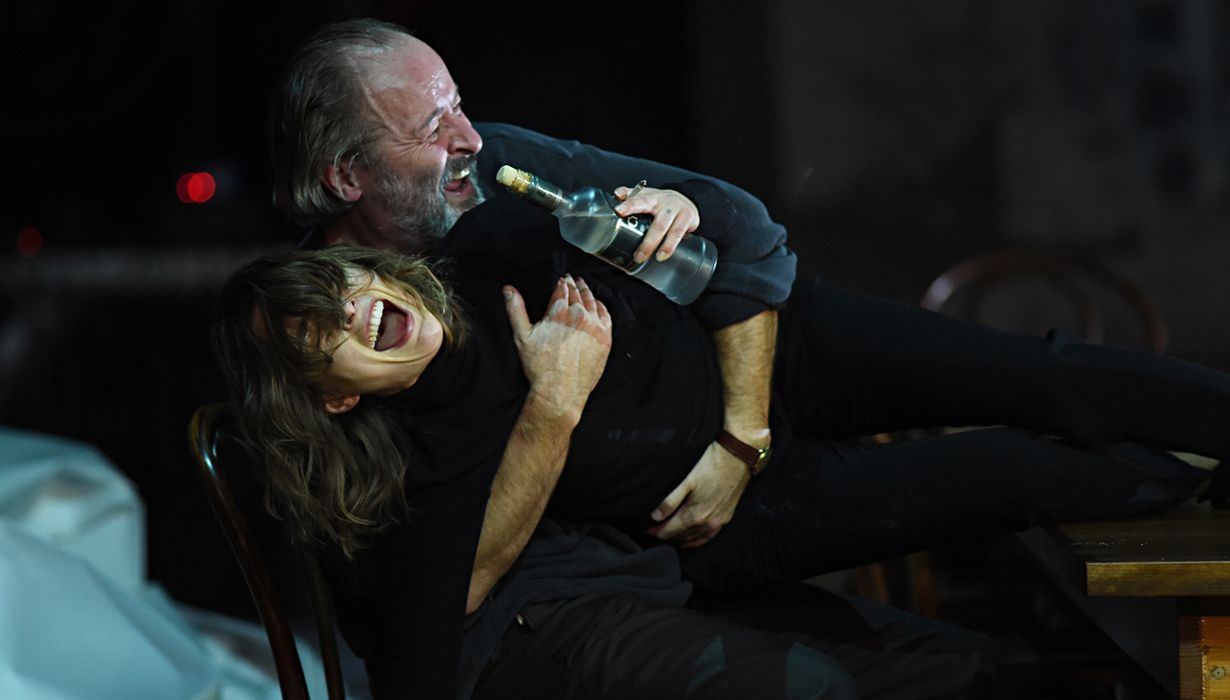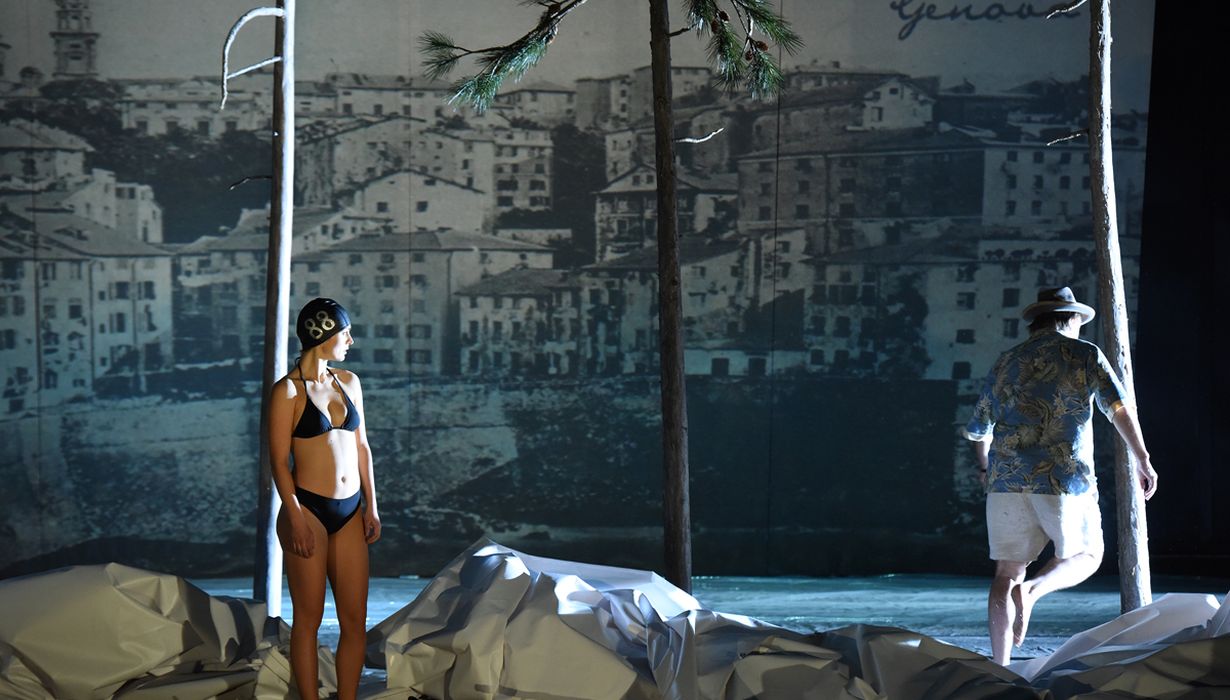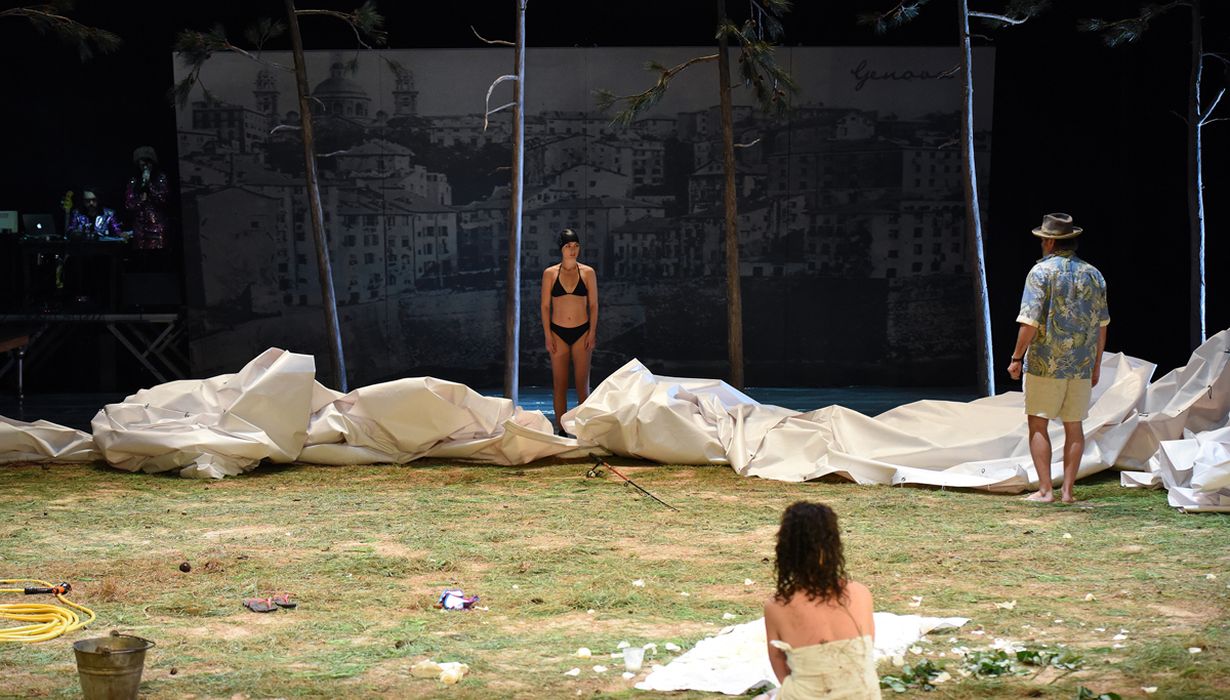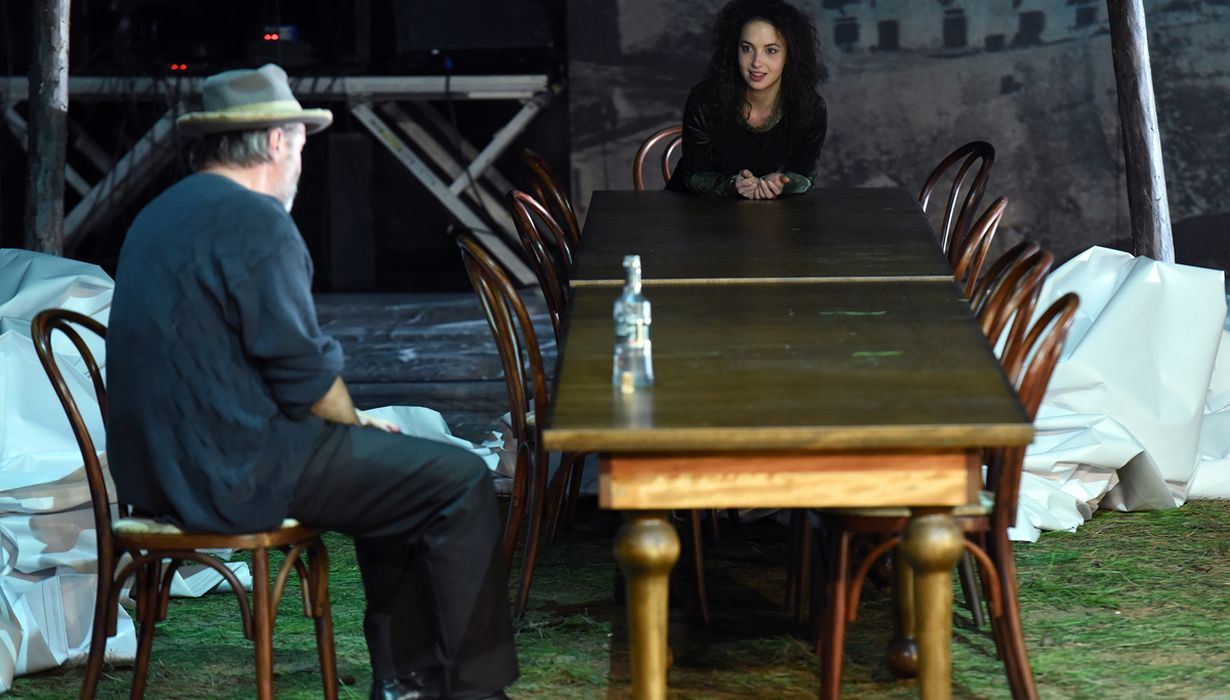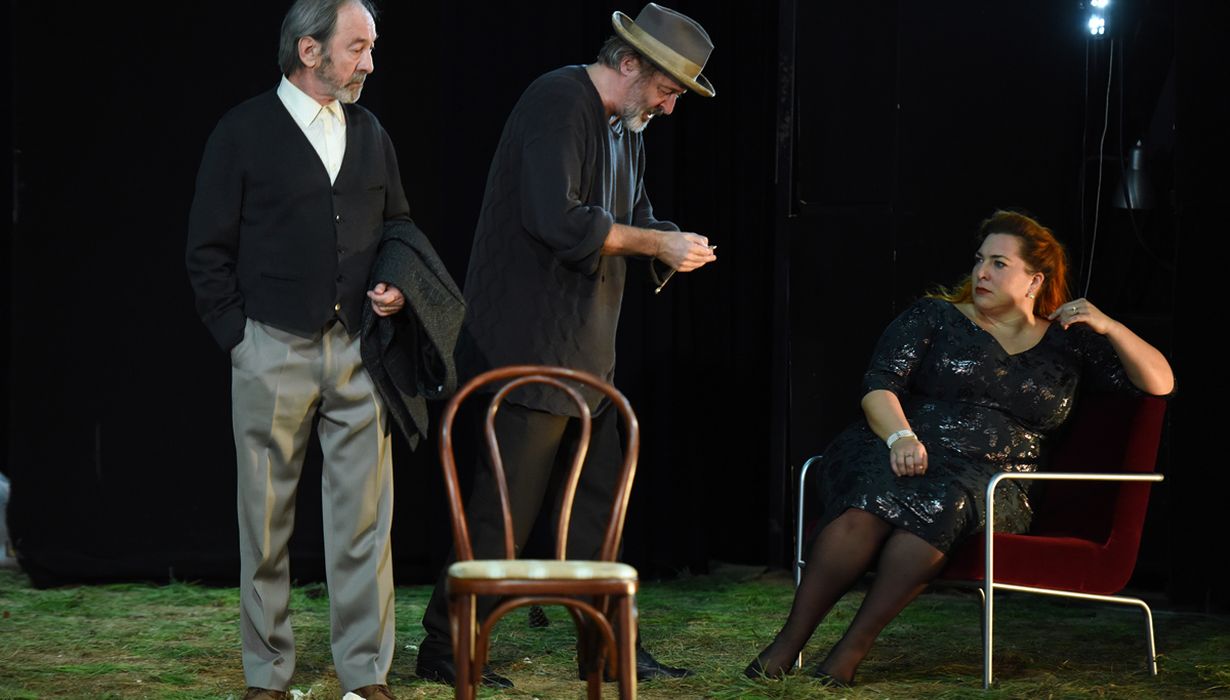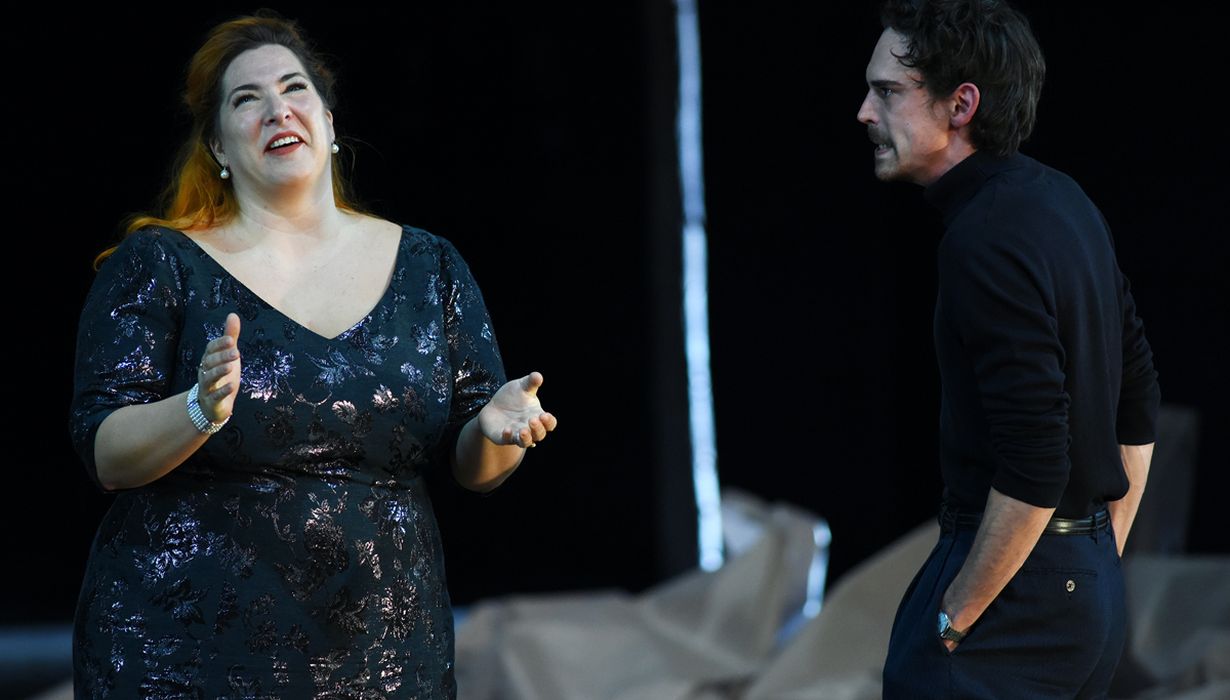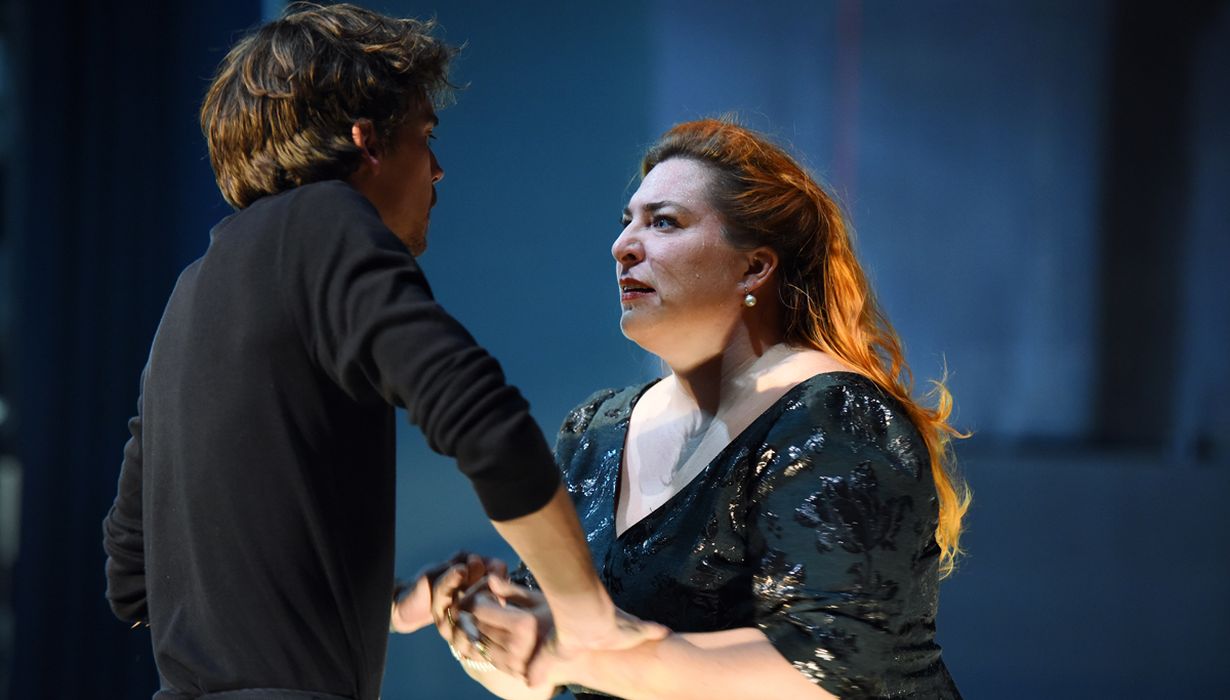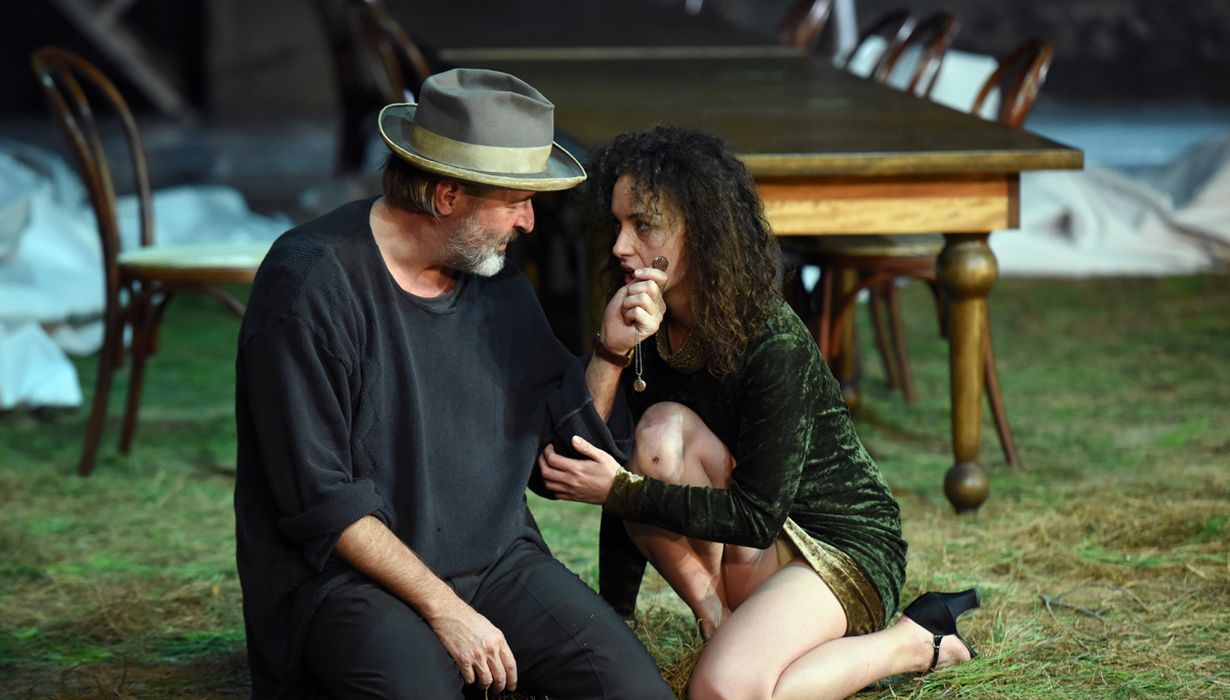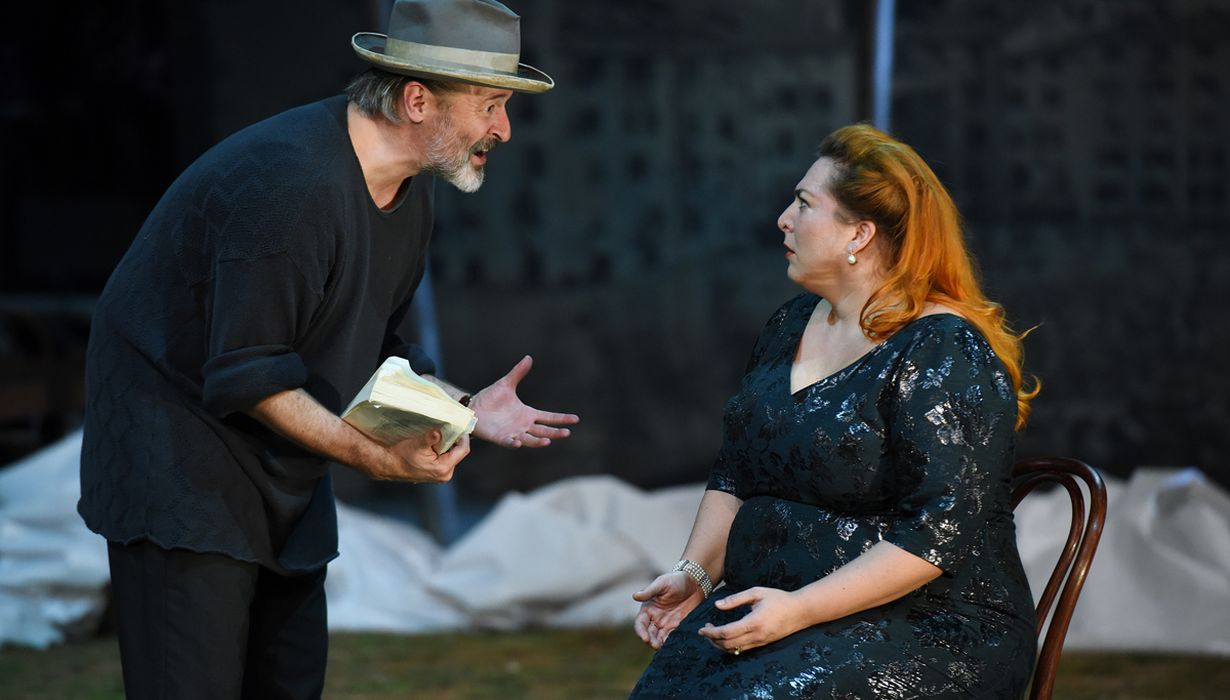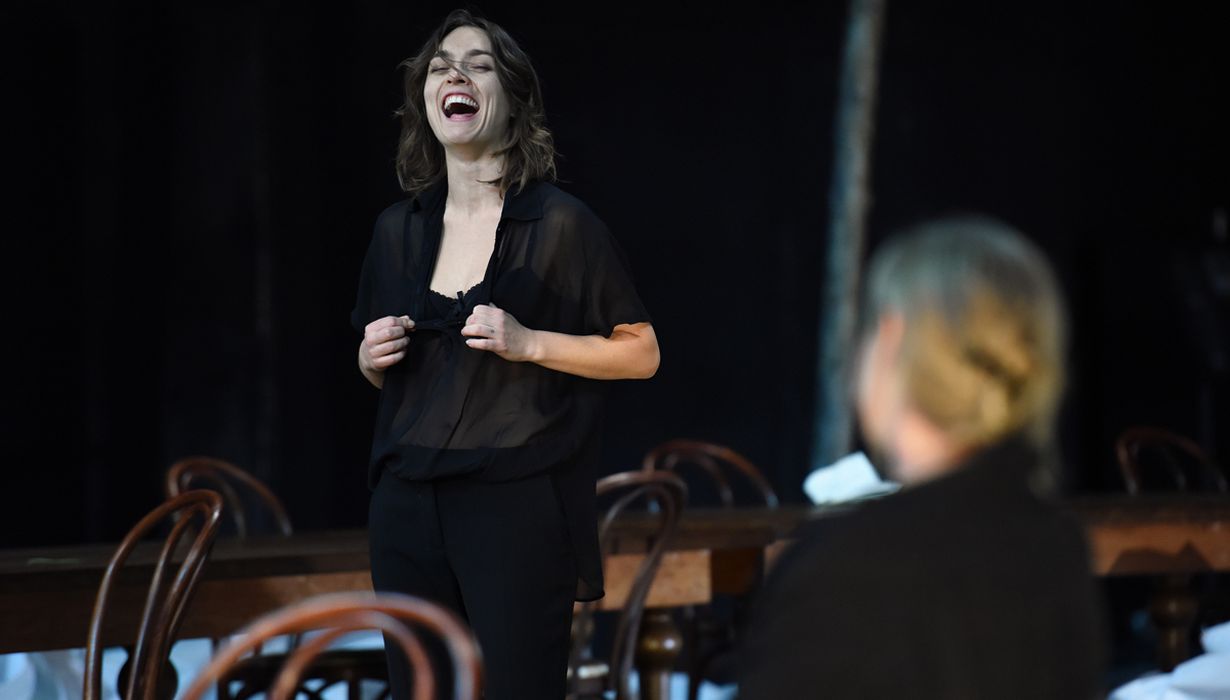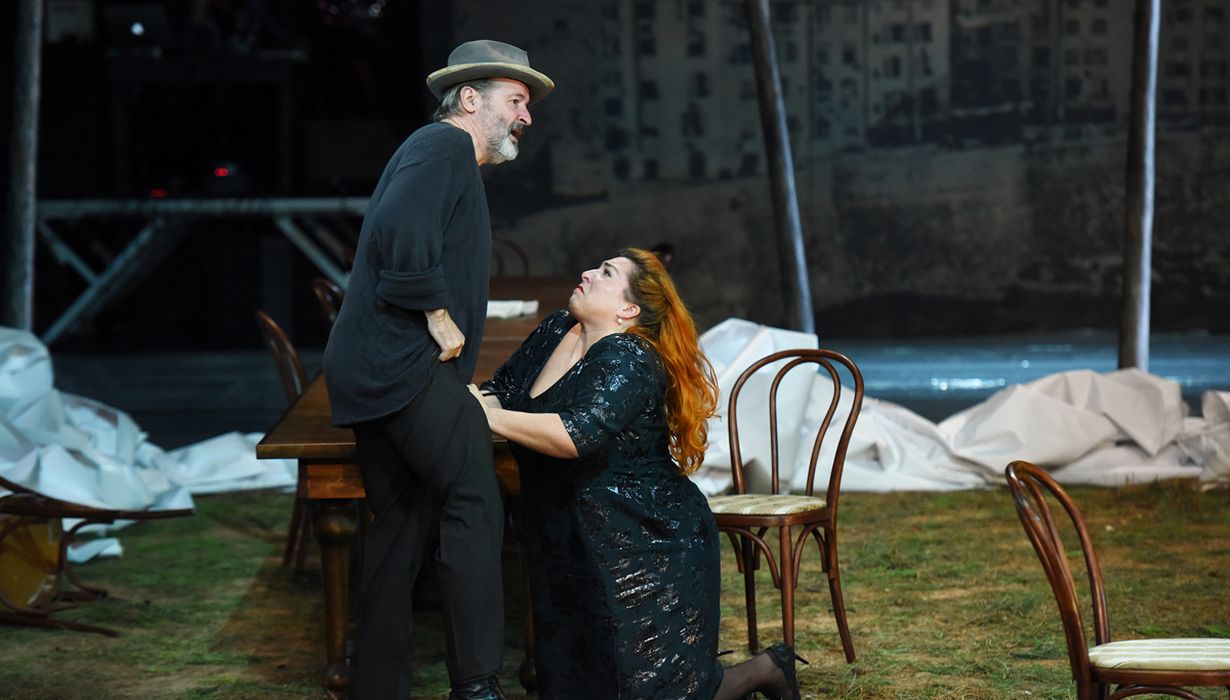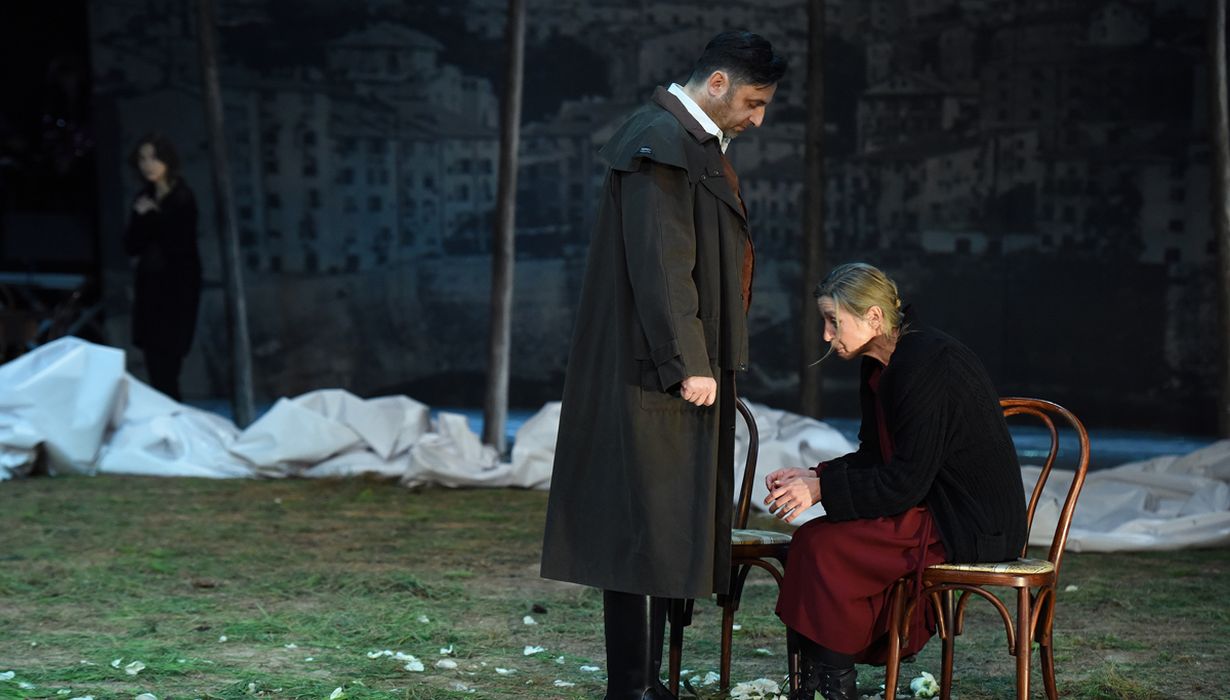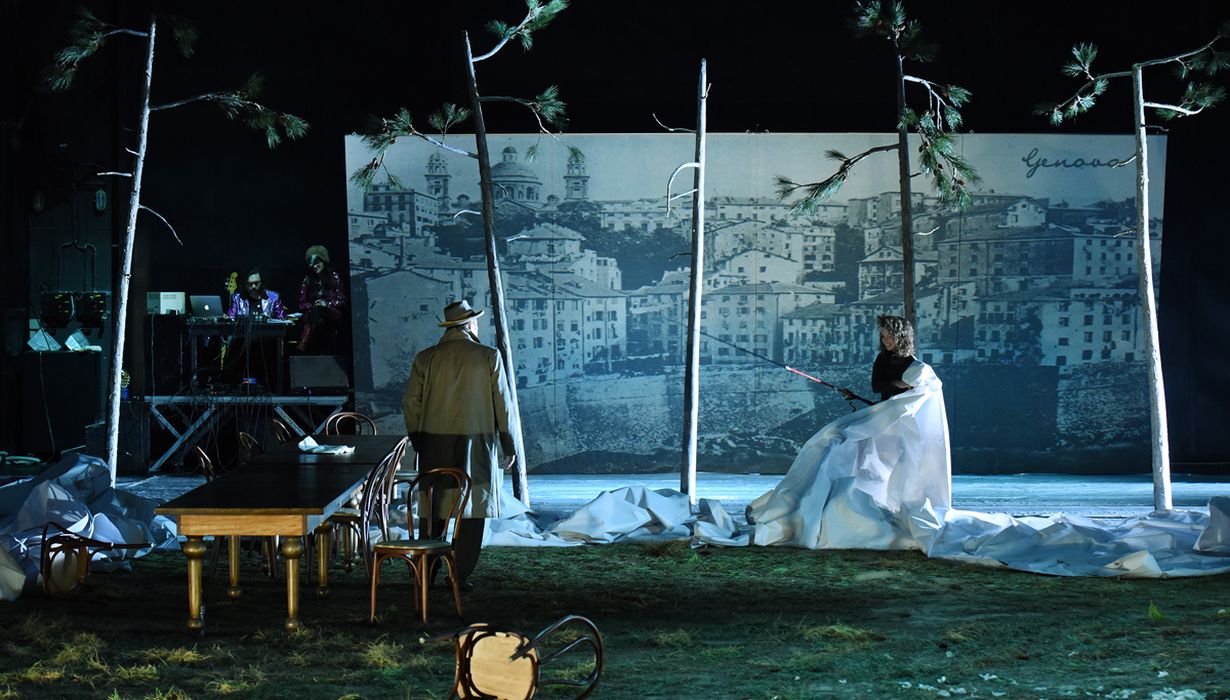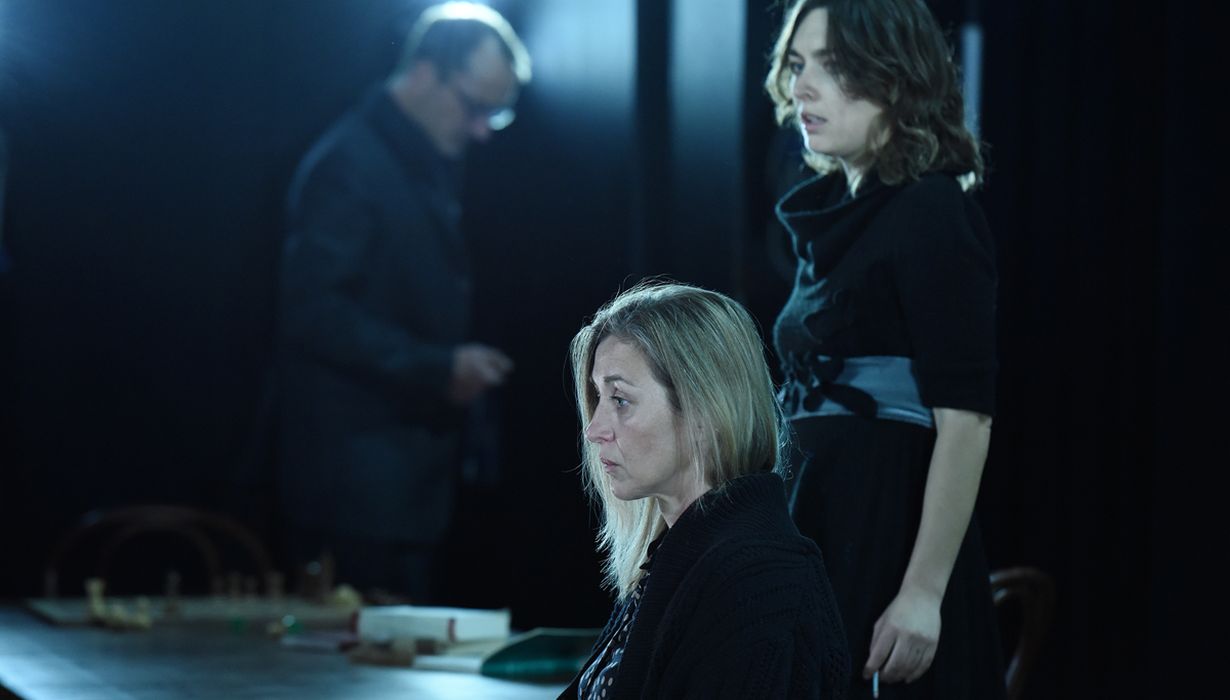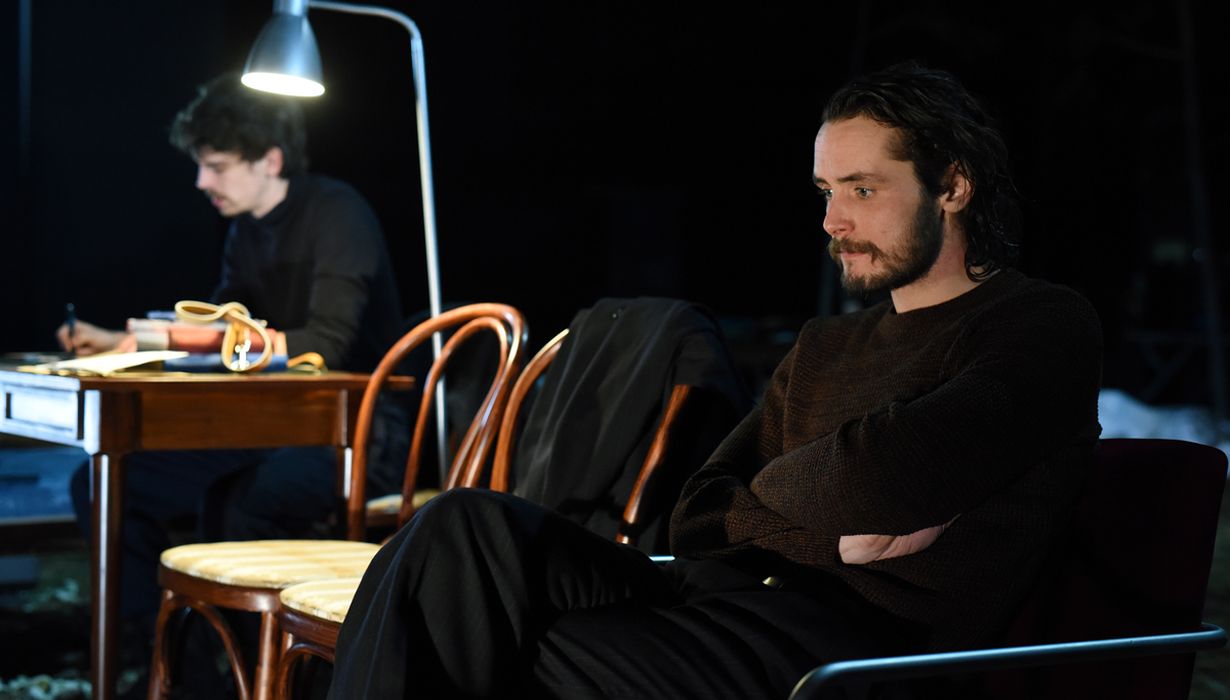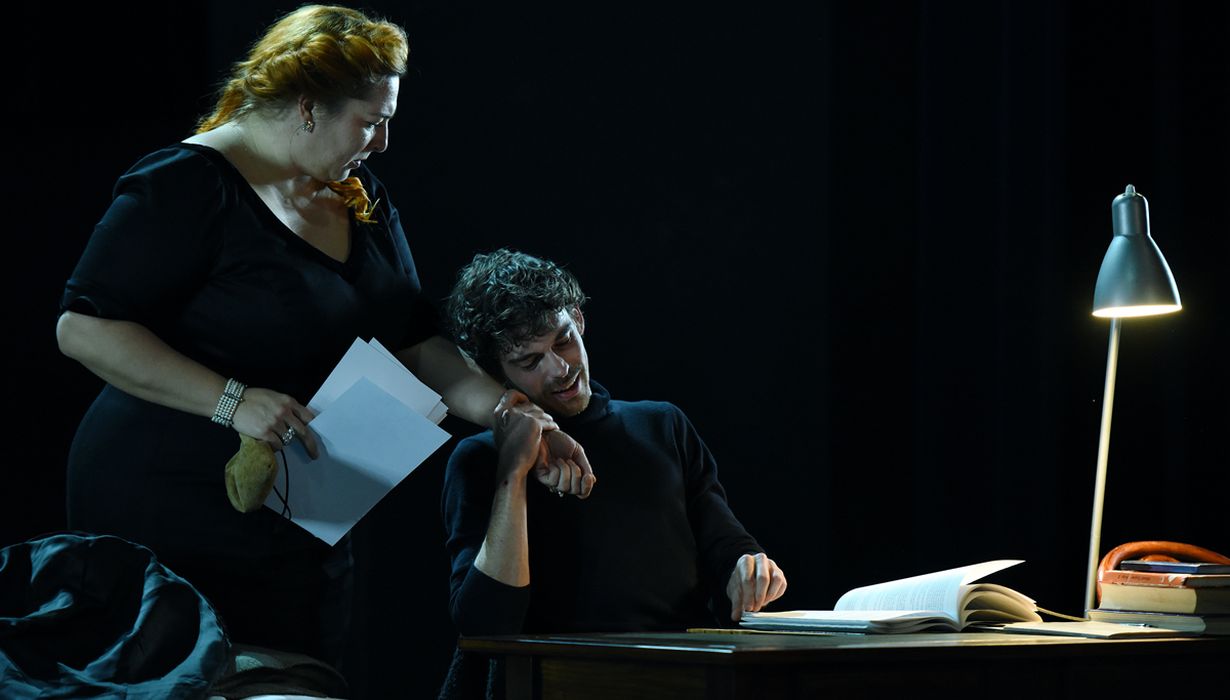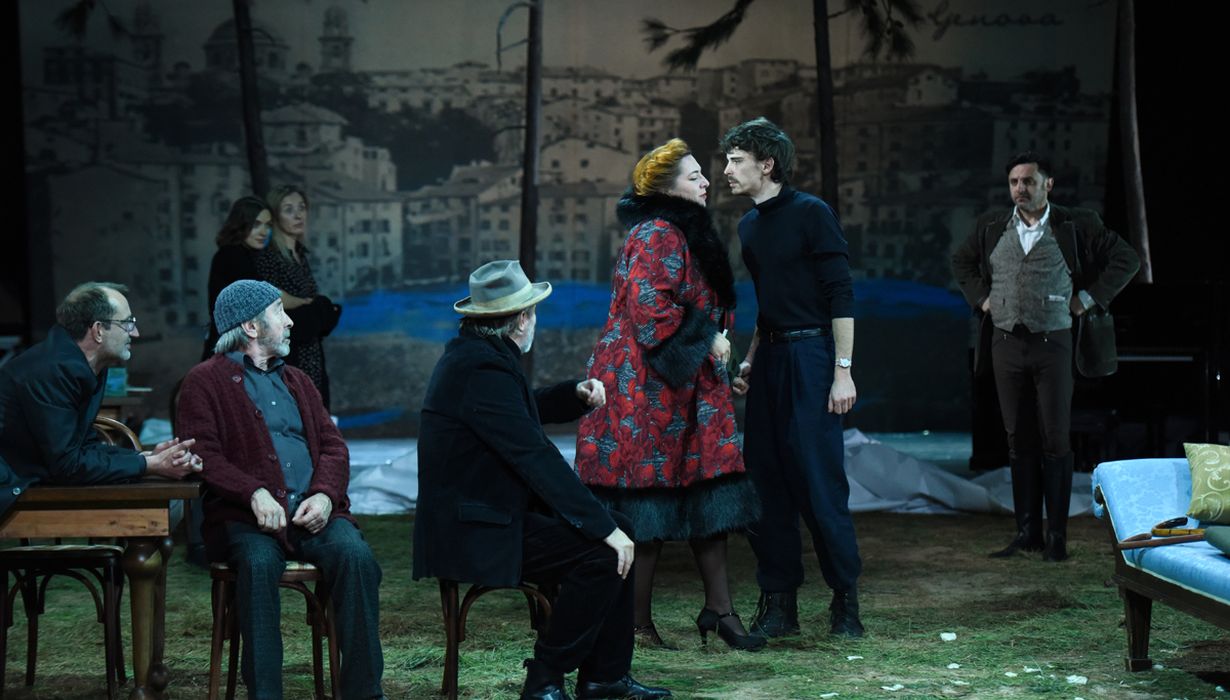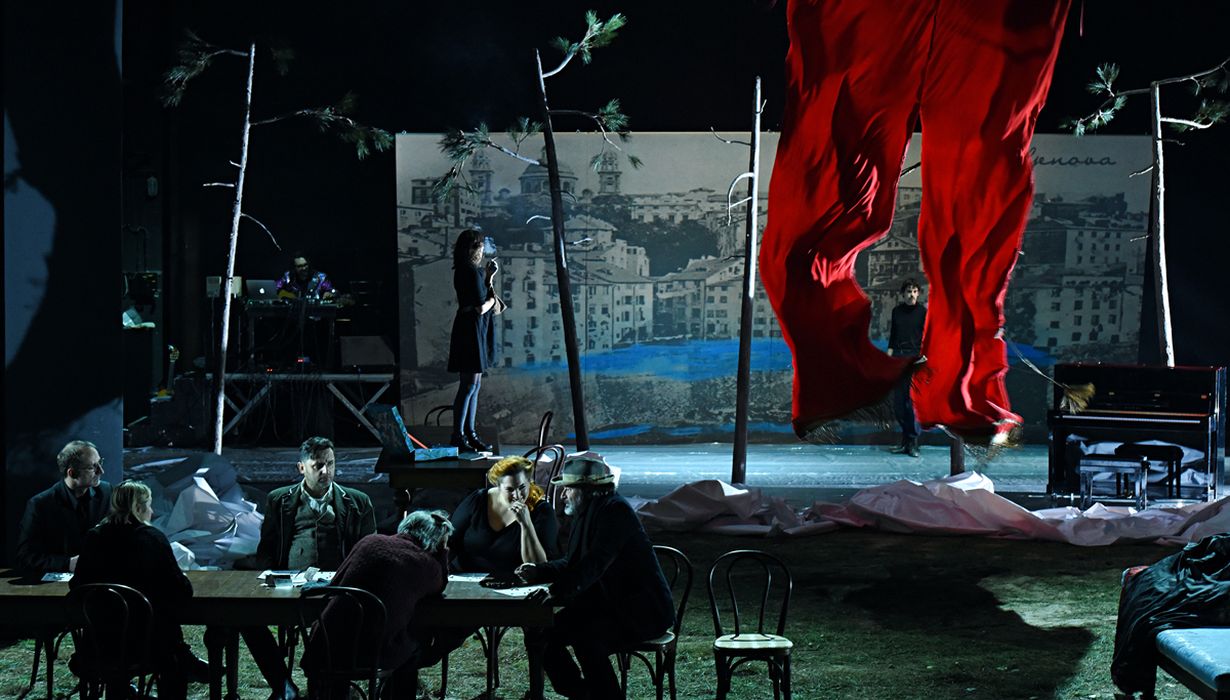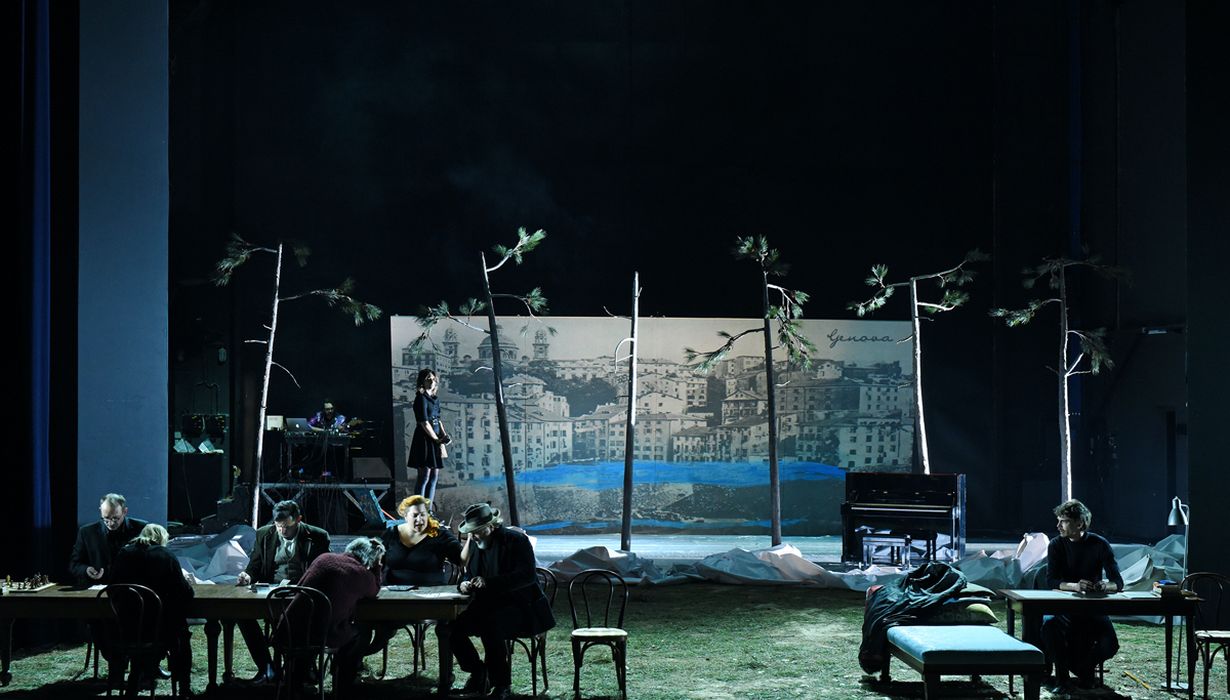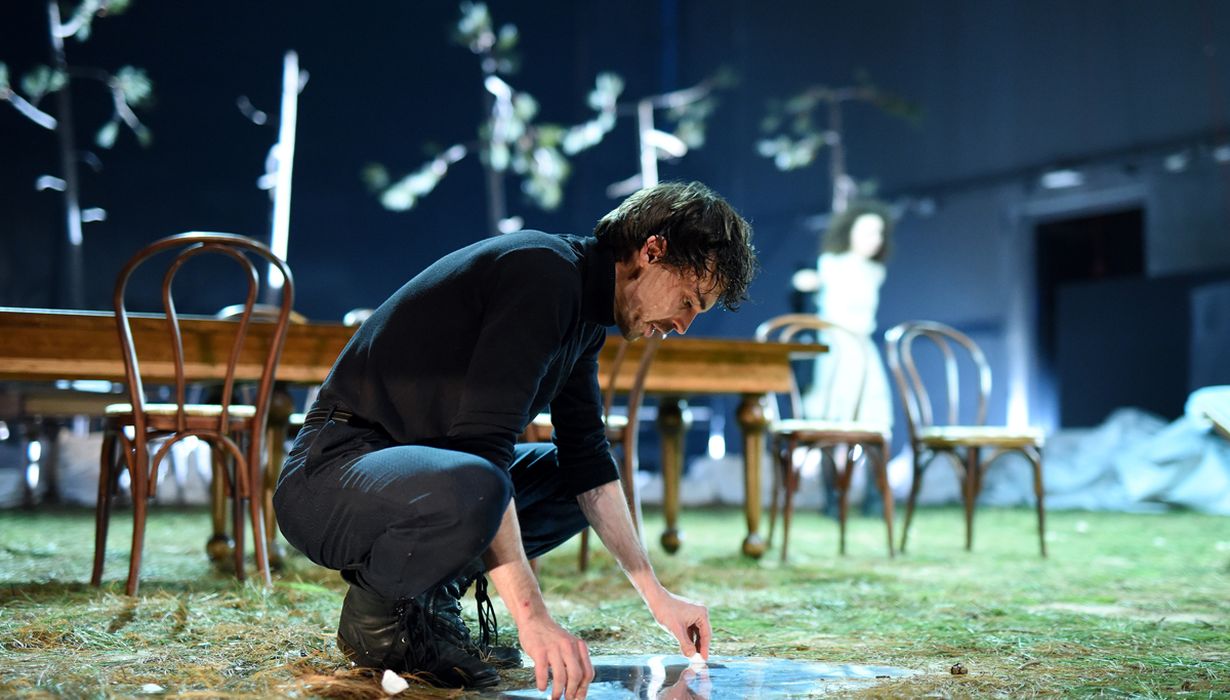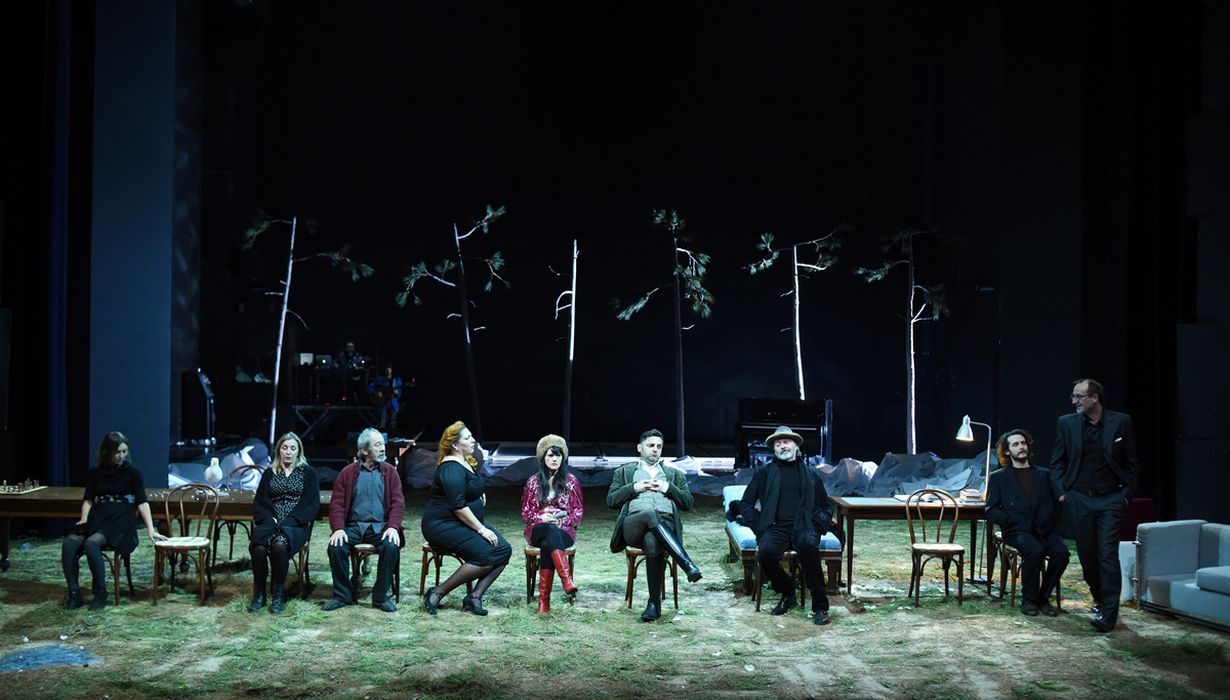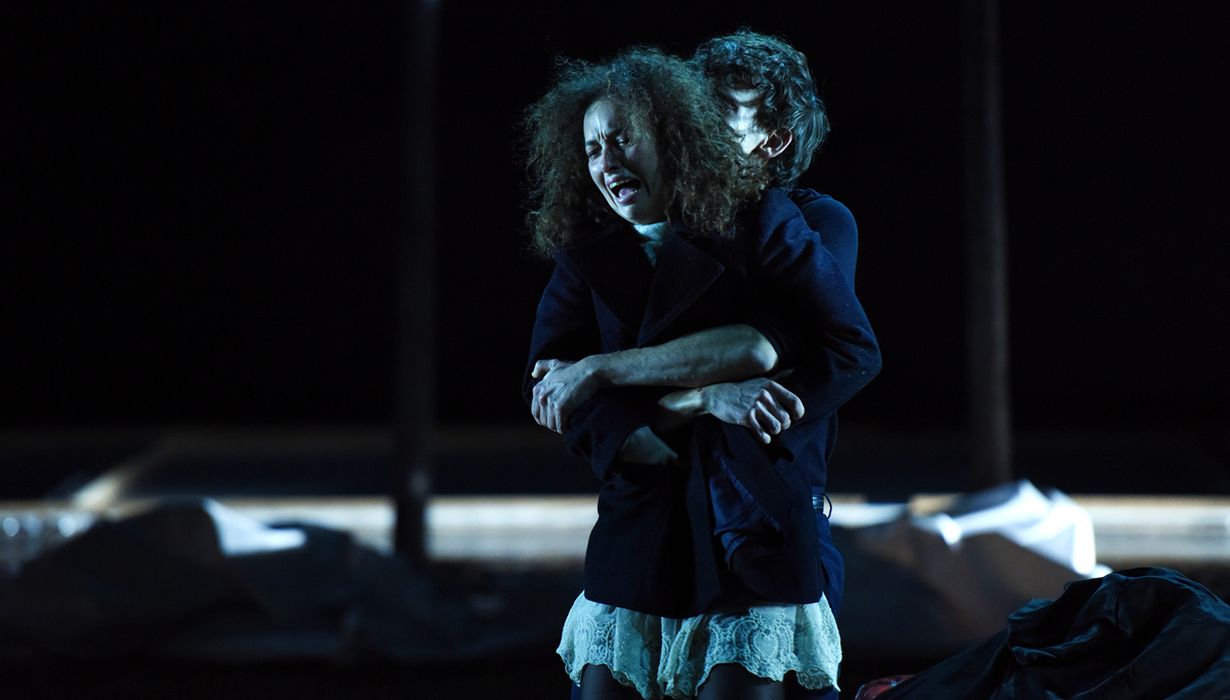The Seagull
Чайка
PREMIERE
7. december 2017
By the lake on the country estate of the aged and ill Sorin and his sister, the famous actress Arkadina, Arkadina’s son Konstantin Treplyov wants to present his vision of a new theatre through a staging of his play. A failed artistic event begins to uncover different longings and to draw numerous love triangles inside the selected company. Treplyov, who wants to succeed as a playwright, is in love with Nina, a young girl who silently wishes to become an actress, but she is charmed by Trigorin, a successful writer and lover of the egocentric Irina. Masha, the daughter of Polina, who is unhappily married to the pragmatic Shamrayev, the manager of Sorin’s estate, and yearns for the attention of the physician Dorn, is unrequitedly in love with Treplyov, while teacher Medvedenko is struggling to get her attention. The situation promises a comedy. And Chekhov began writing it as such: “I’m writing something strange (...) I’m offending terribly against the conventions of the stage. It’s a comedy, with three female roles, six male, four acts, a landscape (a lake view), much talk about literature, little action, and five tons of love ...” But two years pass between the third and fourth act, a time in which many people go through terrible disappointments, and so, in the closing atmosphere, tragic tones hush the comedy.
The Seagull, one of the most frequently performed texts by Anton Pavlovich Chekhov, failed so badly at its baptismal performance in 1896 that Chekhov would have certainly stopped writing for stage, had the play then not been read by Stanislavsky and Nemirovich-Danchenko, the great reformers of the Russian theatre, who triggered, with their staging of The Seagull at the MHAT, an understanding of the dramatist’s writing that was very different from the then-prevailing convention, and their successful staging encouraged his continuing playwriting work. The play, with its subtly expressed experiences of love and jealousy, illumination of the banality of the famous and the melancholy of the unsuccessful, presenting the generational conflicts and the feeling of no perspective is challenging and forever topical; and last not least, inspiring with its core question about the point of art. This question particularly excites us considering today’s state of the world, of art in general, and of theatre in particular. In a new translation by Borut Kraševec, the performance was directed by Paolo Magelli, an internationally renowned director who in Nova Gorica has so far directed Gogol’s Marriage (2001) and Gorky’s Summerfolk (2008).
Creators
-
Translator
Borut Kraševec -
Director
Paolo Magelli -
Dramaturg
Željka Udovičić Pleština -
Language Consultant
Srečko Fišer -
Set Designer
Lorenzo Banci -
Costume Designer
Leo Kulaš -
Composers
Ivanka Mazurkijević, Damir Martinović Mrle -
Designer of Scenic Elements
Branko Drekonja -
Light Designer
Samo Oblokar -
Make-up Designer
Tina Prpar -
Assistant to Set Designer
Giulia Barni -
Assistant to Costume Designer
Iris Kovačič -
Project Co-ordinator
Martina Mrhar
Performing
Irina Nikolayevna Arkadina
Ana FacchiniKonstantin Gavrilovich Treplyov
Nejc Cijan Garlatti k. g.Pjotr Nikolayevich Sorin
Brane Grubar k. g.Nina Mikhailovna Zarechnaya
Urška TauferIlya Afanasyevich Shamrayev
Gorazd JakominiPolina Andryevna
Helena PeršuhMasha
Arna HadžialjevićBoris Alexeyevich Trigorin
Matjaž Tribušon k. g.Yevgeny Sergeyevich Dorn
Blaž ValičSemyon Semyonovich Medvedenko
Matija RupelAlso performing
Ivanka Mazurkijević / Damir Martinović Mrle / Peter HarlDog
Taylor da Vinci
THEATER LIST
In the Media
Festivals and performances abroad
- 5. Drama Festival, Drama SNG Ljubljana, 2018
7. 12. 2017 at 20.00 SNG Nova Gorica.
8. 12. 2017 at 20.00 SNG Nova Gorica.
9. 12. 2017 at 20.00 SNG Nova Gorica.
14. 12. 2017 at 20.00 SNG Nova Gorica.
15. 12. 2017 at 20.00 SNG Nova Gorica.
20. 12. 2017 at 20.01 SNG Nova Gorica.
1. 2. 2018 at 20.00 SNG Nova Gorica.
2. 2. 2018 at 11.00 SNG Nova Gorica.
14. 5. 2018 at 20.00 SNG Nova Gorica.
15. 5. 2018 at 20.00 SNG Nova Gorica.
30. 5. 2018 at 19.00 5. Drama Festival, SNG Drama Ljubljana.
26. 1. 2019 at 20.30 Slovensko stalno gledališče Trst. - CANCELLED
27. 1. 2019 at 16.00 Slovensko stalno gledališče Trst. - CANCELLED
3. 2. 2019 at 19.30 SLG Celje. - CANCELLED
3. 11. 2020 at 23.57 SPLET.
SPONSORS





